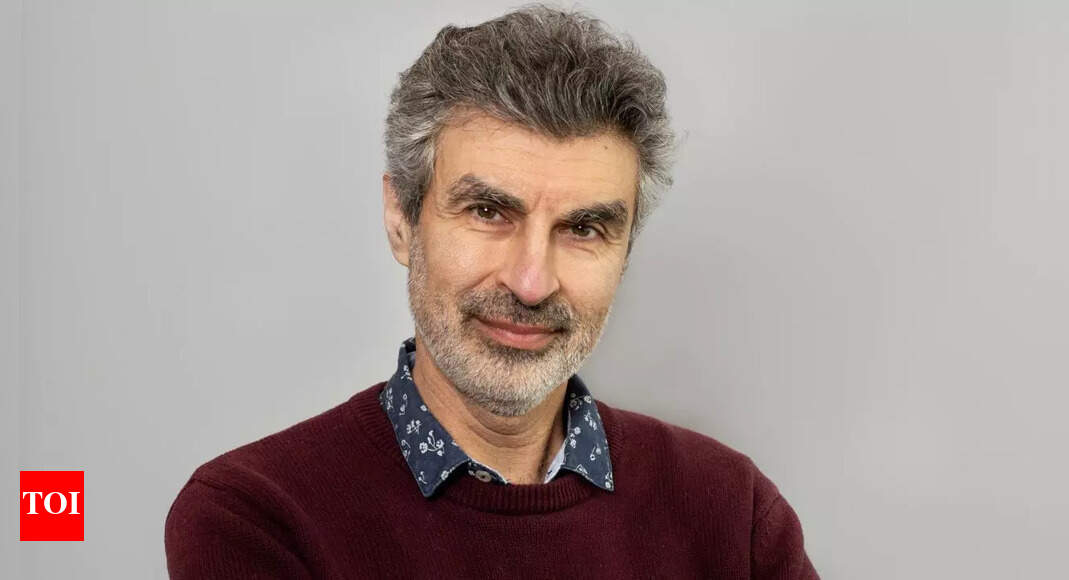 Renowned computer scientist Yoshua Bengio has made history by becoming the first living researcher to surpass one million citations on Google Scholar, a milestone almost unheard of in modern academia. The achievement reflects not only Bengio’s towering influence on the field of artificial intelligence but also the dramatic global surge in deep-learning research over the past decade. As AI reshapes science, industry and everyday life, Bengio’s work stands at the very centre of this transformative era.
Renowned computer scientist Yoshua Bengio has made history by becoming the first living researcher to surpass one million citations on Google Scholar, a milestone almost unheard of in modern academia. The achievement reflects not only Bengio’s towering influence on the field of artificial intelligence but also the dramatic global surge in deep-learning research over the past decade. As AI reshapes science, industry and everyday life, Bengio’s work stands at the very centre of this transformative era.
Yoshua Bengio: A pioneer who shaped modern AI
Bengio, a professor at the Université de Montréal, is celebrated as one of the three “godfathers of AI” alongside Geoffrey Hinton and Yann LeCun. Together, they transformed neural networks from an overlooked research niche into the foundation of modern deep learning, the technology powering today’s chatbots, translation systems, medical-imaging tools and autonomous vehicles.Born in Paris in 1964 and raised in Montreal, Bengio completed his PhD at McGill University before conducting postdoctoral research at MIT and AT&T Bell Labs. When he began his academic career in the early 1990s, neural networks were deeply unfashionable. Funding was scarce, the field lacked credibility and progress was painfully slow due to limited computing power. Despite this scepticism, Bengio remained convinced that deep, layered models were the key to building systems that could understand the world more like humans do.One of Bengio’s most influential scientific impacts came through the work of his students. In 2014, Ian Goodfellow, who was then a PhD student in Bengio’s research group, created Generative Adversarial Networks (GANs), a breakthrough that sparked a global revolution in AI-generated imagery, video synthesis and creative modelling. Bengio co-authored the resulting paper, which went on to become one of the most cited works in the history of machine learning.His widely read 2015 deep-learning review further helped establish the theoretical and practical foundations of modern neural networks, becoming a standard reference for researchers worldwide.Beyond these landmark papers, Bengio has contributed to breakthroughs in representation learning, probabilistic models and attention mechanisms, the same technologies that underpin large language models such as ChatGPT. Many of the innovations driving today’s AI boom trace their origins to ideas he explored years before they became mainstream.
A record that reflects a wider shift
Bengio’s one million citation milestone is not just a personal accolade. It symbolises the sweeping rise of machine learning across global research. AI-related work now dominates the most-cited scientific papers of the twenty-first century. Fields as diverse as biology, medicine, physics and climate science increasingly rely on tools built on concepts Bengio helped develop.Despite the extraordinary attention, Bengio has long expressed discomfort with citation-focused metrics. He argues that such numbers can distort scientific priorities and that the pursuit of understanding, not popularity, should drive research. He acknowledges using Google Scholar extensively as a research tool but says he pays minimal attention to his own citation count.
A journey marked by persistence
The path to deep learning’s success was far from smooth. Throughout the 1990s and early 2000s, Bengio and other neural-network researchers often faced scepticism, academic pushback and limited opportunities for funding. Neural networks were seen as unreliable, computationally inefficient and lacking theoretical grounding. Bengio frequently struggled to persuade colleagues and students that the field held promise.Yet he persisted. As computing power increased and theoretical insights deepened, many of the bottlenecks that once stunted neural networks such as vanishing gradients and training instability were overcome. Bengio’s long-term vision, once considered fringe, proved foundational.
Beyond research: Building institutions and ethics
Bengio’s influence extends far beyond academic publications. He founded Mila, now one of the world’s largest academic AI research institutes, which trains hundreds of researchers and fosters collaborations across industry, government and academia. He has helped shape Canada’s national AI strategy and co-led major scientific programmes focused on advancing machine intelligence.In recent years, Bengio has become a prominent voice in the global conversation about AI ethics, safety and governance. He has warned about the dangers of unregulated advanced AI systems and called for strong guardrails, transparency and international cooperation. His work today often focuses on ensuring that future AI models behave safely, honestly and in alignment with human values.
The legacy and the road ahead
With more than a million citations, foundational scientific contributions and a career devoted to advancing both innovation and responsibility, Yoshua Bengio stands as one of the most influential figures in modern technology. He helped build the intellectual architecture that powers today’s AI systems and now works to ensure those systems develop in ways that benefit society.

